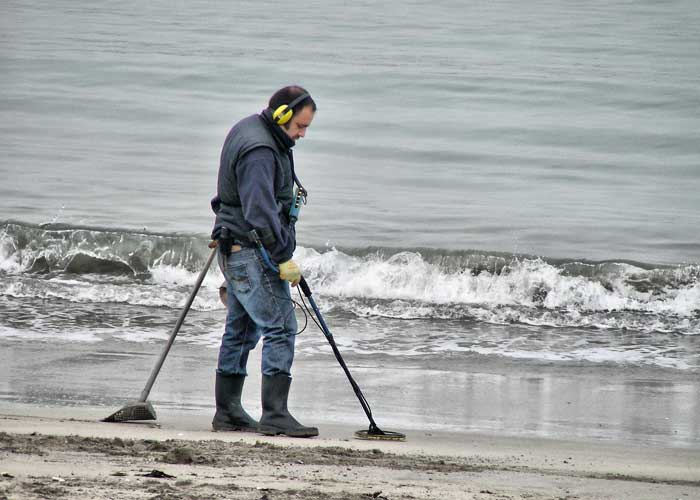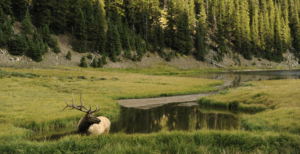

Metal detecting is one of the hottest beach activities and for good reason. They’re a lot of fun to use, and they can lead you on some pretty exciting adventures. But there’s more to beach metal detecting than just finding lost coins or rings. Hidden treasures are waiting for you out there in the sand! And if you want to find them, then read this guide before your next beach trip!
Beach metal detecting is more than just using a metal detector. It’s also about reading the beach and knowing what you’re looking for on each particular beach. And there are certain rules of beach metal detecting that always apply, no matter where you go in the world.
1. Choose the Right Beach Metal Detector
There are so many different kinds of metal detectors that it can seem pretty overwhelming at first. But don’t worry, we have you covered in terms of getting hooked up with a good one for your beach metal detecting adventures. The article from Metal Pursuits will guide you in the right direction when choosing the best beach metal detector, check it out here.
You want something that’s waterproof or splash-proof. This will keep it safe from the rain and from any splashes or water that comes from the surf.
The head of the detector should be sealed off with a waterproof rubber gasket. This will keep sand and other particles out, so it can pick up on all kinds of different metals underwater.
A good beach metal detector will have an automatic ground balance so you don’t have to worry about your settings if you’re going from one beach to another.
It will have a headphone jack or speaker so that the detector can be used in all kinds of conditions – sunny, rainy, nighttime, etc. You want something that’s built for a wide range of uses!
You should also look into getting a metal detector with adjustable tone and volume controls so you’re able to hear the sounds of your detector better in different situations.
The metal detector should also be lightweight and easy to carry around with you, as well as attach comfortably to your belt or backpack. After all, you’ll be walking quite a bit on most beaches!
Finally, get something that’s made out of waterproof hard plastic so you can get the most use out of it and keep it looking new for years! Also read our article about metal detecting questions prior to buying a detector.
2. Get to Know the Beach
Is it rocky or sandy? What are the colors like? How big is it? Is there anything else to do besides beach metal detecting on this beach – swimming, fishing, sunbathing…?
The more you get to know about a certain beach before your trip, the better prepared you’ll be. You want to go somewhere that will have lots of treasure AND be fun to hang out at.
It’s a good idea to check out other people’s reviews online before heading out there and consider it all as you plan your trip.
3. Know the Beach’s History
Knowing the beach’s history can help you find beach metal detecting targets that others might have missed. Some areas of the beach are more likely to reveal treasures than others, and knowing why is a huge clue as to where to look!
For example, if you’re on an island with a rich history like Bermuda, this can be a great way to find precious historical artifacts. Just read up on the history, then go searching for evidence of ancient settlements or shipwrecks.
4. Get Familiar with Beach Metal Detecting Regulations
Every beach has its own metal detecting rules, and in many places, it’s required by law that you have a permit to metal detect on a public beach. Check the local laws before you start any searches!
5. Pay Attention to Beach Geology and Terrain
The type of land that surrounds the beach can make a big difference as to what kinds of objects are likely to wash up from offshore, or even what kinds of targets might be buried on the beach. For example, rocky areas can attract more rocks and rocks often attract coins.
6. Study Local Geology
If you’re looking for interesting objects to find on the beach, you need to know what kind of geology is common in the area. Some areas will have lots of volcanic rocks in them, while others might be made up of sedimentary rocks. This can make a big difference in what sort of objects you might find there!
You want to study the beach, but also the surrounding area. Get a good understanding of what land is made up of nearby so that you can find hidden treasures on both beaches and hillsides.
7. Use a GPS Tracker
A good way to explore an unfamiliar beach is with a GPS tracker. This can help you find all sorts of cool hidden treasures that some other beach metal detectorist might have missed!
8. Take Advantage of High Tides
Depending on how much time you have to metal detect, the best times may actually be when the beach has the most water over it. High tides reveal buried treasure that was previously submerged in the sand!
9. Use Different Metal Detector Settings for Different Materials
When you’re out there looking for lost treasures, you want to use different settings to detect different kinds of metal.
For one, steel is usually easy to find because it makes a clear and sharp beep, but when you’re looking for gold or copper, you want to use the discrimination feature so that your detector will ignore iron.
If there’s silverware in the sand then you can set the sensitivity setting as high as possible so that you can hear everything in the sand while your metal detector isn’t affected by any nearby gold. It’s a little harder to find treasure when you’re using these different settings, but it’s always worth it!
10. Leave No Trace
As with any outdoor activity, it is important to remember that you are in a natural environment and leave it as clean as when you arrived. Don’t leave any trash behind and don’t dig more than you need to, if you must at all!
Conclusion
As you can see, there are many ways to read the beach and find hidden treasures!
If your goal is to have fun while hunting for lost treasure then it’s a good idea to go somewhere that will be enjoyable. It might also pay off if you know about the history of an area before searching so that you know what kinds of objects people may leave behind in those areas.
You’ll want to learn more about regulations first as well as geology because this information could help decide where on the beach would be best suited for metal detecting.
There’s no one size fits all approach when it comes to reading beaches but with these 10 tips we’ve provided, chances are high that you’ll enjoy exploring them even more than usual!







